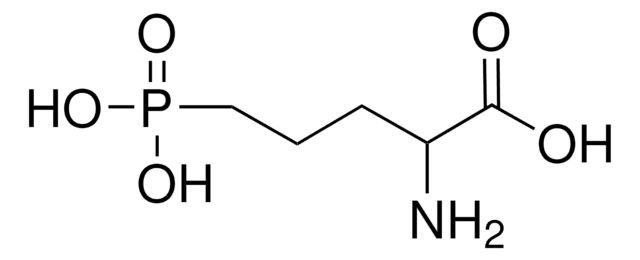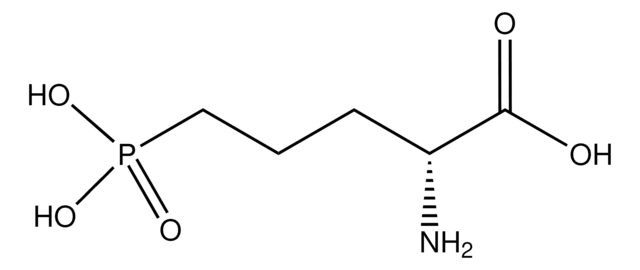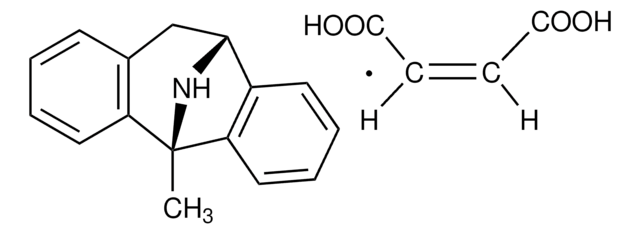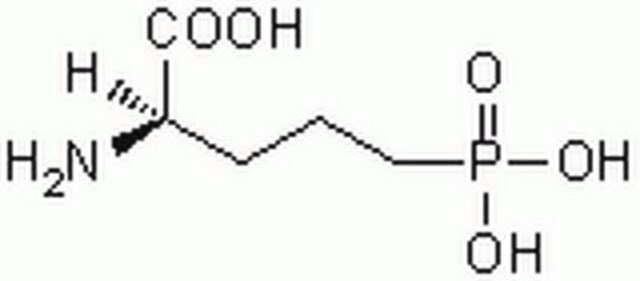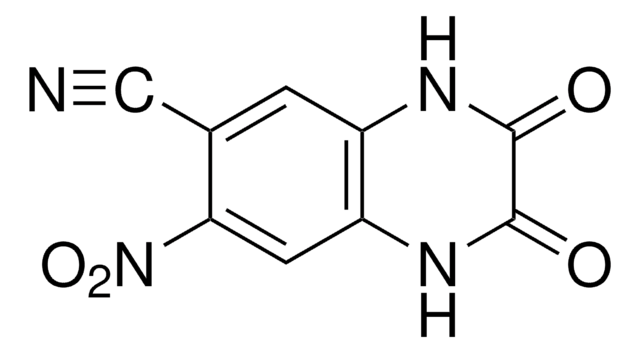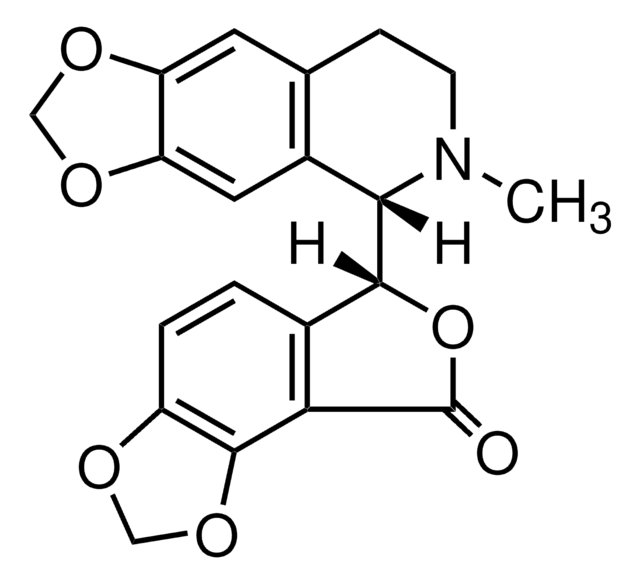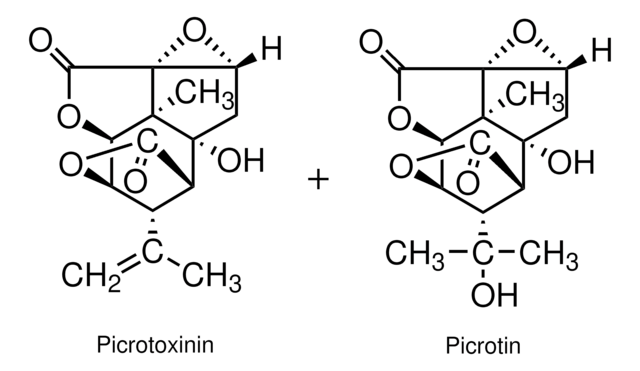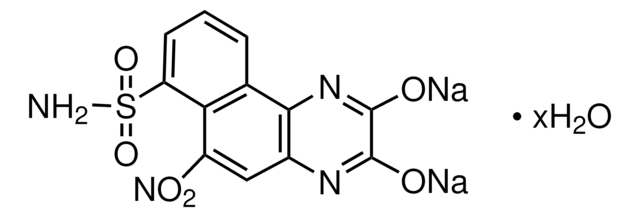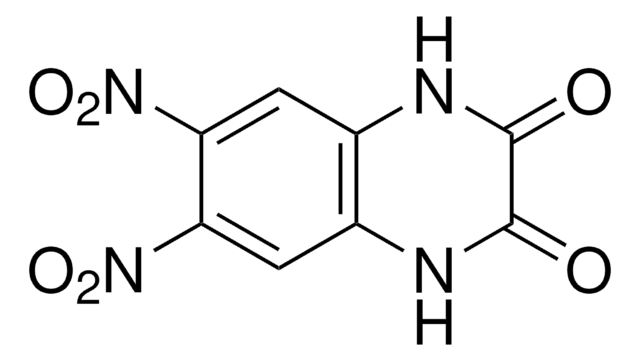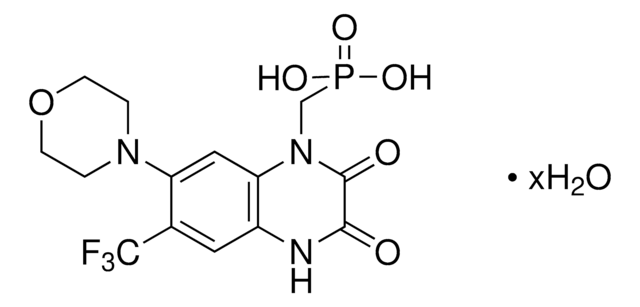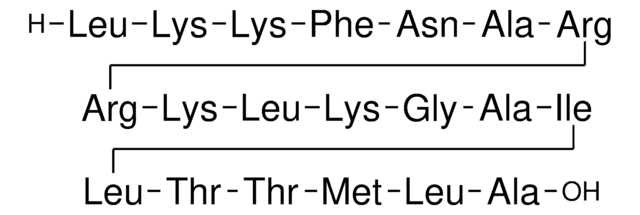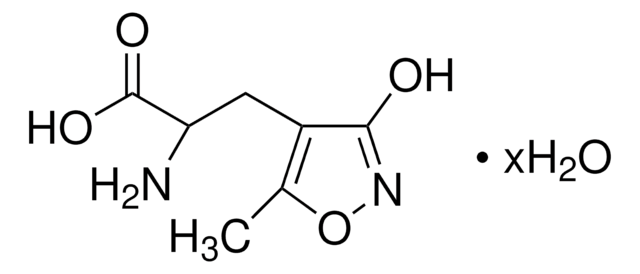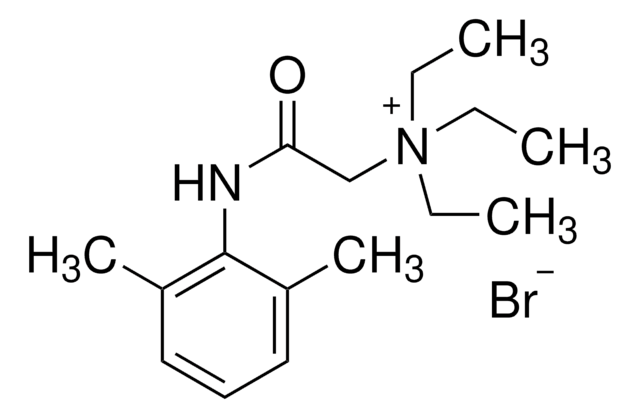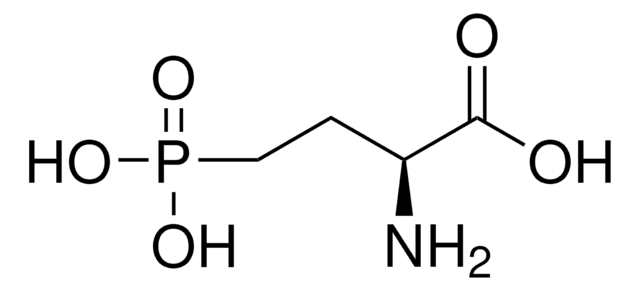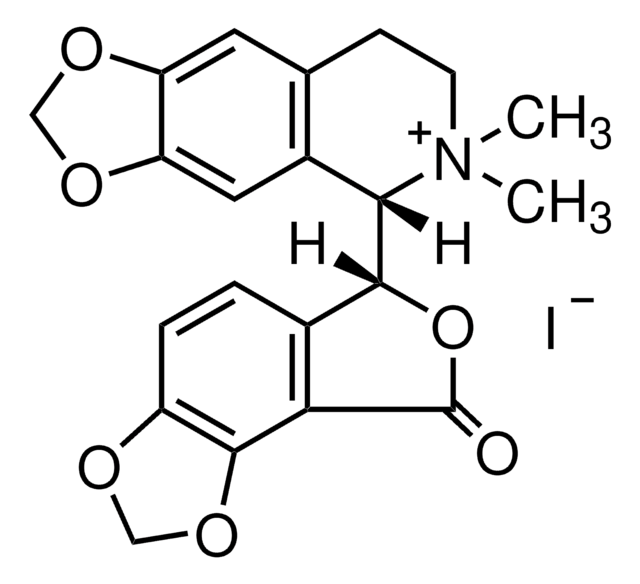C239
CNQX disodium salt hydrate
≥98% (HPLC), solid, AMPA/kainate receptor antagonist.
Synonym(s):
6-Cyano-7-nitroquinoxaline-2,3-dione disodium salt hydrate
About This Item
Recommended Products
Product Name
CNQX disodium salt hydrate, ≥98% (HPLC), solid
Quality Level
Assay
≥98% (HPLC)
form
solid
storage condition
protect from light
color
orange to red
solubility
H2O: >2 mg/mL (warmed)
SMILES string
O.[Na+].[Na+].[O-]c1nc2cc(C#N)c(cc2nc1[O-])[N+]([O-])=O
InChI
1S/C9H4N4O4.2Na.H2O/c10-3-4-1-5-6(2-7(4)13(16)17)12-9(15)8(14)11-5;;;/h1-2H,(H,11,14)(H,12,15);;;1H2/q;2*+1;/p-2
InChI key
LCDWHGXMFAZHEO-UHFFFAOYSA-L
Gene Information
human ... ADORA1(134) , ADORA2A(135) , ADORA2B(136) , ADORA3(140) , GRIA1(2890) , GRIA2(2891) , GRIA3(2892) , GRIA4(2893)
Application
- as a competitive non-NMDA receptor antagonist and competitive AMPA/kainate receptor antagonist in neuronal cultures(110)
- as a glutamatergic blockers for measuring inhibitory postsynaptic currents in projection neurons(111)
- as a AMPA glutamate receptor antagonist prefrontal cortex neurons(112)
Biochem/physiol Actions
Features and Benefits
Storage Class Code
11 - Combustible Solids
WGK
WGK 3
Flash Point(F)
Not applicable
Flash Point(C)
Not applicable
Personal Protective Equipment
Regulatory Listings
Regulatory Listings are mainly provided for chemical products. Only limited information can be provided here for non-chemical products. No entry means none of the components are listed. It is the user’s obligation to ensure the safe and legal use of the product.
PDSCL
Deleterious substance
JAN Code
C239-25MG:4548173190884
C239-100MG:4548173190877
C239-5MG:4548173190891
C239-IP:
C239-VAR:
C239-BULK:
Choose from one of the most recent versions:
Already Own This Product?
Find documentation for the products that you have recently purchased in the Document Library.
Customers Also Viewed
Our team of scientists has experience in all areas of research including Life Science, Material Science, Chemical Synthesis, Chromatography, Analytical and many others.
Contact Technical Service